The Myth of India as a Superpower
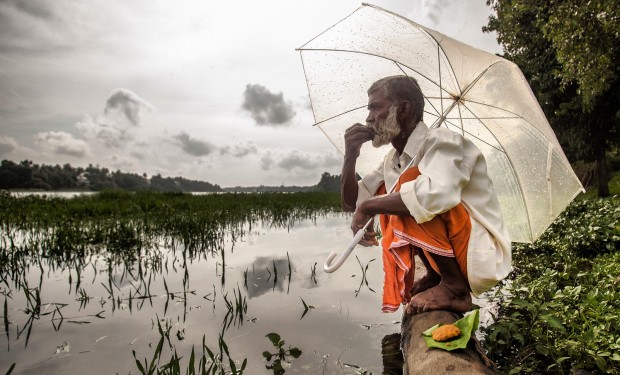 The verdict of the world press is finally out: India, they say, is no longer a poor, despicable country as depicted by orientalist European cinema and novels but is now a superpower. To strengthen their argument, they show us India’s nuclear arsenal. If this does not suffice, they show us that the wealth of the 100 richest Indians has doubled or trebled. They go on recounting one after another feat to muster their points, including: the 2011 Cricket World Cup victory, India’s moon mission, the cellular industry’s phenomenal growth, the number of Indians who have won prizes in beauty pageants, and the growing popularity of Bollywood cinema in European countries. Things could not get better these days, with everything, from plastic surgery to quantum physics, being “proven” to have been discovered somehow by Indians thousands of years ago, as the whole world slept. The case has been solved beyond the shadow of a reasonable doubt. India is the future. Unsurprisingly, those who cheer for this kind of India are the same westerners who view the non-western world as being their personal fiefdom.
The verdict of the world press is finally out: India, they say, is no longer a poor, despicable country as depicted by orientalist European cinema and novels but is now a superpower. To strengthen their argument, they show us India’s nuclear arsenal. If this does not suffice, they show us that the wealth of the 100 richest Indians has doubled or trebled. They go on recounting one after another feat to muster their points, including: the 2011 Cricket World Cup victory, India’s moon mission, the cellular industry’s phenomenal growth, the number of Indians who have won prizes in beauty pageants, and the growing popularity of Bollywood cinema in European countries. Things could not get better these days, with everything, from plastic surgery to quantum physics, being “proven” to have been discovered somehow by Indians thousands of years ago, as the whole world slept. The case has been solved beyond the shadow of a reasonable doubt. India is the future. Unsurprisingly, those who cheer for this kind of India are the same westerners who view the non-western world as being their personal fiefdom.
A few months ago, I had the opportunity to attend one of my childhood friend’s marriage ceremony in the Northern part of Bengal’s splendidly dense forest. There, I met one of my former school teachers who suggested, for “my own benefit,” that I join the Nazi-inspired Bharatiya Janata Party (BJP). He explained that, apart from the fact that I have all relevant degrees, I also have a Muslim name. This led me to withdraw into some deep labyrinthine cave inside me for a while, despite the hustle bustle of the wedding. The conversation provided crucial clues into the minds of India’s superbly corrupt middle class, who have been hypnotized into believing that India could be powerful only through arms, displays of aggression, masochism and a poisonous breed of nationalism. Nitasha Kaul in her essay, Kashmir: A Place of Blood and Memory (In Until My Freedom Has Come: The New Intifada in Kashmir, Edited by Sanjay Kak, Haymarket Books, 2013) has this to say: “The large swathes of Indian middle classes are stuffed with intolerance, unthinking mass entertainment, and over consumption – fed by a corporatised media that ‘manufactures consent’ in a textbook Chomsky way. The mix of ignorance and blustery self-confidence that one encounters in middle-class Indians rivals Americans (they share this ‘superpower’ trait!).”
Average middle class Indians barely read, and when they do, to show how culturally advanced they are, they do not wander beyond the fictions of Chetan Bhagat or Sidney Sheldon. In cinema, they are die-hard fans of the horrible actor-cum-criminal Salman Khan, and in politics they have recently found out that if there is god on earth, then it is Modi. Their detergents have worked hard to wash off the bloodstains from this man’s clothes. The clamor of middle-class Indians for a life of super abundance is so deeply rooted that, as things stand, more and more they display the unmistakable characteristics of their former colonial masters. The middle class and the rich have become India’s new colonizers. Since colonization of economic resources is impossible without a simultaneous colonization of history and memory, India’s scholars, composed largely of liberal Brahmans, have embarked on an ambitious project to rewrite the history of the poor and dispossessed. In this history of hunter and hunted, the hunters are always glorified: they become the unquestioned mediators of the universe. Their violence is normalized through the cultural apparatus, and any deviation from it is taken as a sign of unmanliness or even disloyalty. Today’s middle class has absorbed all the barbaric elements of the neoliberal world view, according to which, the huts of the poor must be cleared to make way for the shopping malls of the rich. The middle class never tires of repeating the word “development” as it refuses to ponder its meaning and implications.
The Brazilian philosopher Paulo Freire, in his lucid and easy-to-read book, Pedagogy of the Oppressed (1968), comments that “It is not to become free men that they want agrarian reform, but in order to acquire land and thus become land owners–or, more precisely, boss over workers.” This is exactly what has happened in most post-colonial societies. After hundreds of years of struggle and sacrifice, countries in Asia, Africa, Central America and South America were able to turn the tide of colonization. The colonizers left, but they bequeathed to the rest of the world the imperialistic values and cultural praxis that have become so deeply rooted in our societies. Most of the countries that had inherited a proud legacy of anti-imperialist struggle gave up their insistence on egalitarian societies. The newly-emerged ruling class with a history of colonization molded itself in the image of its colonial masters. The brown or black man had consciously or unconsciously internalized the traits of the white man. In the absence of the white man, the brown or black man became one: an object that inspires both fear and awe.
In India, the most violent upheaval started in the early 1990s. Since then, any remnant of a welfare state has been gradually withdrawn. India, for the first time in its independent history, had a Ministry for Disinvestment: a ministry created purely for the purpose of handing over public resources, created out of public funds, to private players. In short, India moved from proto-socialism to aggressive crony capitalism: a point publicly acknowledged even by former Prime Minister Manmohan Singh.
The net result of more than two decades of so-called economic reforms is there for everyone to see. India is on the brink of nuclear war with Pakistan over Kashmir; there is a massive rise of religious fanaticism, and the whole laboring class, which has suffered the most, leads a life of despair. Go and visit any Indian city, and the mere sight will hurt the eye like a sore. These are our cities, where millions live chattel-like existences amidst stunning islands of prosperity. In the same city where a vast majority do not get access to drinking water, you’ll find families who own private jets. Violence against religious and sexual minorities is a daily occurrence. The Indian economy is in good shape, but Indians are forced to live a hand-to-mouth existence. There is a growing sense of disillusionment among most Indians, and it is largely to counter this disappointment that right-wing political outfits today fan nationalism and the threats of terrorism and immigrants. We collectively spend less to buy pencils for our children than to purchase arms. One could accurately say that middle-class Indians suffer deeply from an inferiority complex. It is to overcome this complex that they need to chant the mantras of superpower: its celebration, its symbolism, its dominant cultural values, its cinema, its novels, its songs, all of which affirm that deep down even they know that these are just a smoke-screen, a phantasy, a simulacrum created to calm their growing sense of unease. If reality cannot be altered, then it can at the least be forgotten, ignored or misrepresented through art.
Three days after the marriage was over, I met my teacher once again. I had arrived at my boarding school. In jails, military barracks and boarding schools, life is immune to change. It has its own sense of timelessness. Instead of myself, I found that young boys who resemble me deeply were, as usual, involved in the rituals of the boarding school. Once again my school teacher and I had an extended and quarrelsome discussion over almost everything: from India’s foreign policy to Leo Tolstoy’s aversion to the church. One of those evenings, my teacher disclosed to me his deep-rooted desire to die. He looked into my eyes and said in a most melancholic tone, “I wish I could die quickly.” I was caught here. I tried hard not to look into his teary eyes. Here was a man who had taught me so much; I had learned from him that learning is the result of life-long and back breaking hard work. But men change. Time alters everything: from the blade of grass to diamond-hard convictions. If today, more and more middle class Indians get drunk and desire their death, the reasons are not hard to fathom.
Indians like my teacher champion a fascist model of development that exerts a disturbing influence on the inner self. The neoliberal world view builds up misery and guilt in those who theorize it or support it. It alienates the individual, firstly from his inner self and secondly from his fellow beings. These theories conveniently forget that there is a limit on natural resources. Forlorn and wasted, where else will such men seek their redemption if not in their own death. Fascism and its first cousin neoliberalism are harbingers of death and destruction. If Indians do not heed history, India could end up meeting the same fate as Japan, which learned a lesson on humanity and sobriety after a barbaric nuclear war. In 1998, when India blasted its first successful nuclear bombs, the men in uniform ironically used the code phrase “Buddha is smiling” to indicate to their masters that the tests were successful. The way our internal crisis is brewing, the way India is conducting its business with Pakistan, soon Buddha might be laughing at us.
Editor’s Notes: Photographs one, three and four by Sandee Pachetan; two and seven by Prasanth Chandran; five and six by Jared Zimmerman; eight by John Holman; and nine by Angela Marie Henriette.
Related Articles


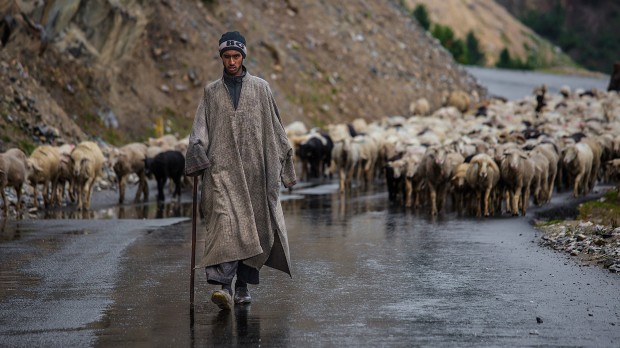
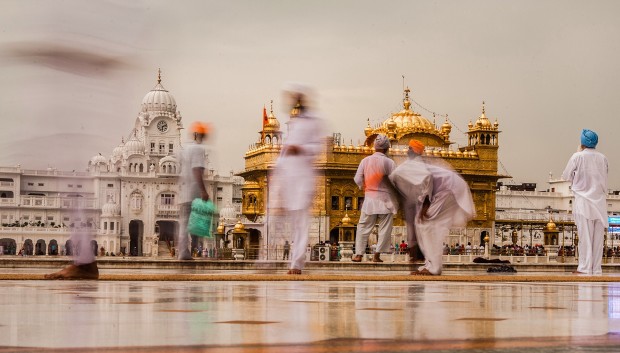
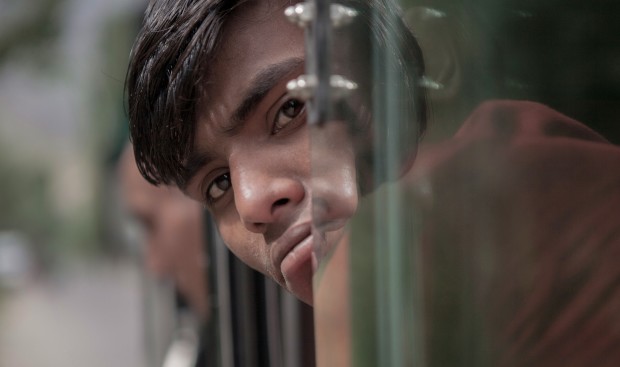
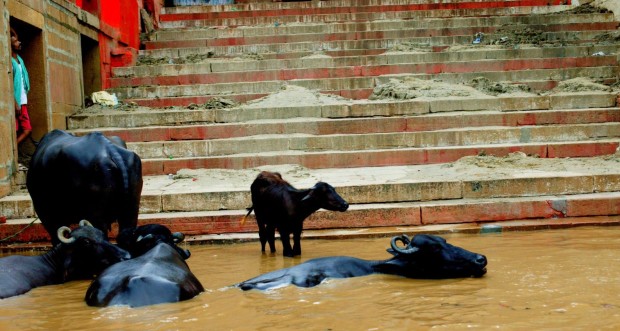
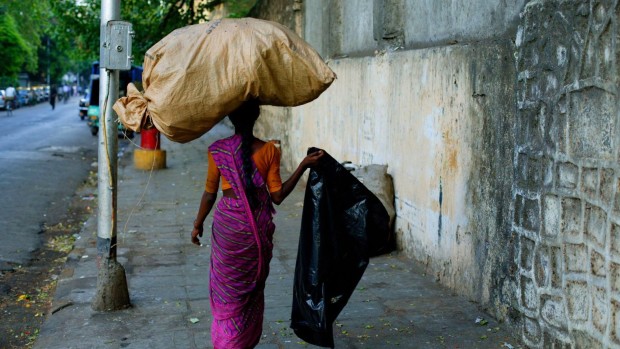

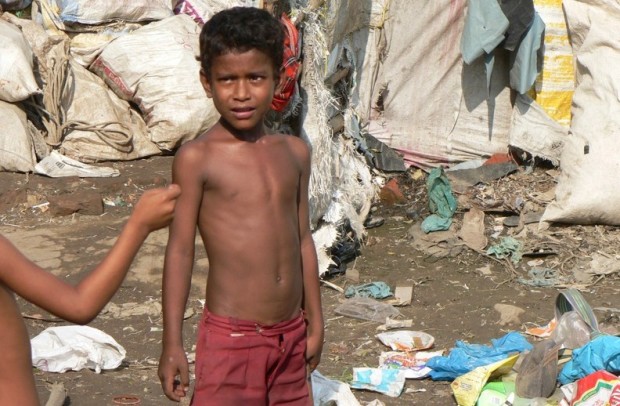
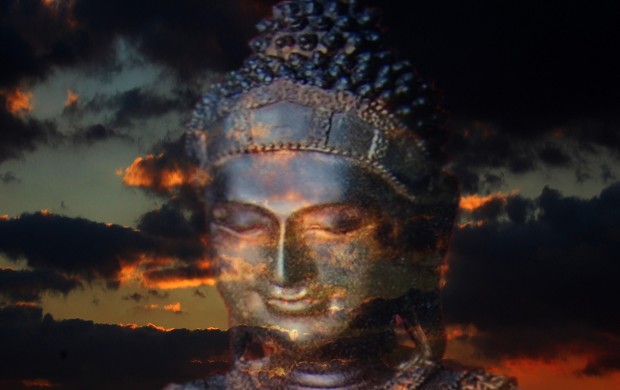











4 Responses to The Myth of India as a Superpower
You must be logged in to post a comment Login